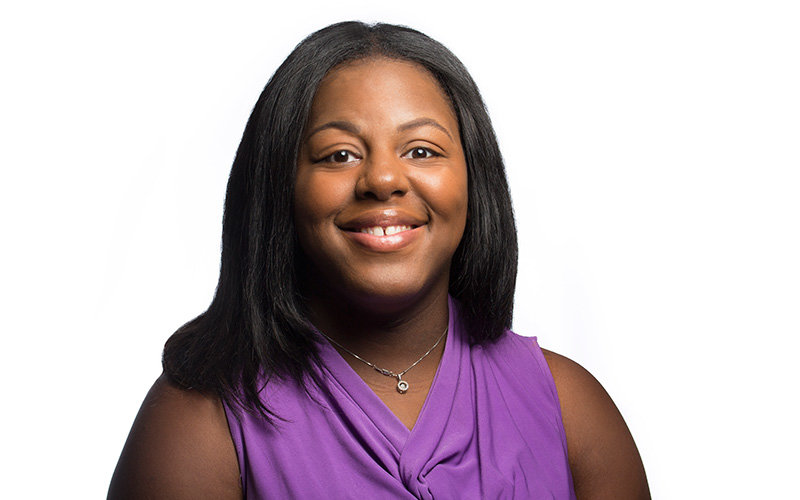
For mathematics educator Patrice Parker Waller, teaching in higher education is the best of both worlds. She not only teaches her favorite subject, she also is preparing others to become outstanding math teachers.
“I have a passion for improving teaching and learning in K-12 and undergraduate mathematics classrooms,” said Waller, who joined Cal State Fullerton this fall semester as an assistant professor of secondary education.
Waller has traveled to such countries as Brazil, South Africa, Morocco and Ghana to explore the teaching of mathematics and to examine how math is embedded in different cultures. In 2014, she was awarded a Fulbright-Hayes Program fellowship to study mathematics, women and culture in Belize.
She is a member of the National Council of Teachers of Mathematics and the Association of Mathematics Teacher Educators, where she was selected as a 2016 Service, Teaching and Research fellow. Waller holds a doctorate in teaching and learning with a concentration in mathematics education from Georgia State University. She earned a master’s degree and bachelor’s degree from North Carolina Central University, a historically black university, where she also studied mathematics.
What inspired you to go into your field and what was the defining moment?
I love the satisfaction I receive when I engage in problem-solving in my math classes. Becoming a math teacher was an obvious choice when it came time to decide my major for my undergraduate studies. It was then when my desire to go beyond teaching in the high school classroom developed. I was eager to learn more and had an unquenchable thirst for knowledge.
What are your research interests?
I’m interested in improving the teaching and learning of mathematics in grades K-12 and in undergraduate mathematics, as well as teaching and learning mathematics abroad.
How do you engage students in your classes and/or your research?
It is important that I provide my students with new, innovative and engaging strategies to teach mathematics. I do this by modeling interactive problem-solving and best practices each time we meet. Students are encouraged to be both learners and teachers as we work together to build their knowledge of effective strategies for teaching and learning foundational level mathematics to prepare for middle school and high school teaching.
What changes do you envision in your field five years from now?
I envision that mathematics teaching will move away from the traditional drill and skill methods to exciting, relevant, cooperative discovery learning that allows students to make connections about mathematics and their everyday lived experiences.
What is the state of mathematics education in schools today?
I would say that mathematics education in schools today is in transition. As mathematics educators, we have placed the call for a shift in mathematics teaching from the traditional approach — where the teacher is the barrier of all knowledge and has the responsibility of relaying it to the students — to a more constructivist approach so students are able to create and relate mathematical knowledge as they problem solve, deepen and broaden mathematical content knowledge, make sense of underlying principles, and see mathematics within cultural settings.